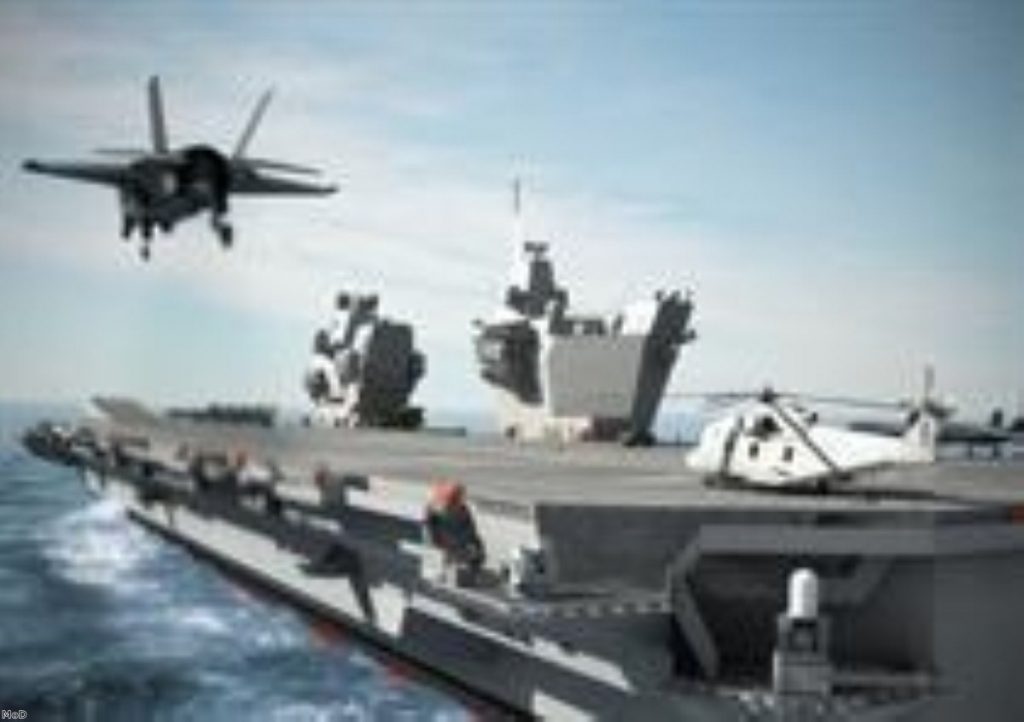Recession delays aircraft carrier construction
Two Royal Navy aircraft carriers will be delayed by two years, defence secretary, John Hutton has announced.
In a statement to MP’s Mr Hutton said construction would proceed at a slower pace to protect jobs for longer as the defence budget tightens.
The shipbuilding project, due to begin next March, will cost £4 billion. The announcement will affect shipyards in Appledore, Portsmouth, Barrow-in-furness, Glasgow and Rosyth.
In his statement, he said: “We have concluded that there is scope for bringing more closely into line the introduction of the joint combat aircraft and the aircraft carrier. This is likely to mean delaying the in service date of the new carriers by one to two years.


“Construction is already under way and will continue, the programme will still provide stability for the core shipyard workforce, including 10,000 UK jobs.”
The decision to slow construction has come under criticism from Nick Harvey, Liberal Democrat defence spokesman, who claimed it would put the Armed Forces under even more pressure and not fully address the problem.
Mr Harvey said: “Our armed forces are crying out for strategic direction, but instead are getting more delays and salami-slicing.
“In these uncertain economic times, industry and workers deserve more certainty.
“These pitiful, stopgap arrangements will do very little to ease the long-term budget crisis. They only serve to make a full defence review all the more urgent.”
The Green party also criticised the decision saying the money would be better spent on kick starting a “green industrial revolution” which will better help the country out of recession.
John Sauven, executive director of Greenpeace, said: “Spending £4 billion on two aircraft carriers – that are going to be delayed anyway – is not a solution to tackling the recession, or securing long-term jobs for the UK.
“Instead, the government should have invested this money in a cleaner, more secure future for the UK by kick-starting a green industrial revolution.
“A green investment in cutting-edge UK technology will improve the nation’s energy security, create hundreds of thousands of jobs, and make us a world leader in low-carbon know-how. And we’ll lead the way in tackling climate change and securing the future of our planet.”
Des Browne gave the green light for the construction of HMS Queen Elizabeth and HMS Prince of Wales in May, when he was defence secretary. Contracts worth about £3.2 billion were signed in July.









